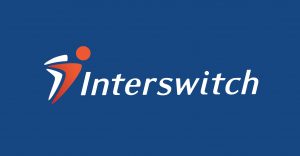The rapid increase in the number of fintech companies and services all over Africa continues to go on and attract investors who in turn continue to capitalize on the sector which continues to expand.
One of the prominent fintech companies on the continent; Flutterwave has announced that has secured an additional 170 Million US Dollars after a new round of funding. This has brought the company’s valuation to an impressive 1 Billion US Dollars. A truly Unicorn status.
The Series C round was spearheaded by United States Hedge fund and investment firm; Tiger Global and private investment company; Avenir Growth Capital based in New York.
New investors as well as existing investors who were also a part of the Series C round of funding include Tiger Management, Early Capital Berrywood, PayPal, DST Global, Worldpay FIS 9yards Capital, Greycroft Capital, Salesforce Ventures, Insight Ventures, and Green Visor Capital.
The Series C round of funding is coming one year after the african startup; Flutterwave closed its 35 million US Dollars Series B and 20 million US Dollars Series A round of funding in 2018.
Flutterwave has so far raised a total of 225 million US Dollars. It remains one of the very few African startups who have been able to secure more than 200 million US Dollars in funding.
Flutterwave which was launched in 2016 as both a Nigerian based and United States based company with offices in both Lagos and San Francisco makes it possible for businesses to set up payment applications that can be customized via its Application Programming Interfaces (APIs).
As at the time Flutterwave underwent its Series B round of funding it had carried out 107 million transactions worth an impressive 5.4 billion US Dollars. Those numbers have now grown to more than 140 million transactions worth over 9 billion US Dollars .
The fintech startup also makes it possible for businesses outside of Africa who are looking to expand their operations or begin operations in Africa, to do so. Flutterwave currently has international giants like Uber, Facebook, Booking.com, and Flywire.

According to Flutterwave a total of over 290,000 businesses currently use its platform to handle payments. The company through a statement added that they do so “in 150 currencies and multiple payment modes including local and international cards, mobile wallets, bank transfers, Barter by Flutterwave.”
While Flutterwave’s official website shows that the company has an active presence in 11 African countries, the Chief Executive Officer (CEO) of the company; Olugbenga Agboola more fondly known as GB while speaking to popular technology media platform; TechCrunch revealed that the company is operating in a total of 20 African countries and has an infrastructural reach in more than 33 countries on the continent of Africa.
2020 proved to be one of Flutterwave’s most vital years as the second round of funding for the 5 year old company arrived just before the ongoing Coronavirus pandemic was in full swing in Africa. Although the pandemic had a negative effect on very many businesses, payments platforms like Flutterwave continue to thrive.
The Chief Executive Officer (CEO) of Flutterwave; Olugbenga Agboola made it known that the company achieved a growth of more than 100 percent in revenue over the past year alone as a result of the still ongoing Coronavirus pandemic. The more than 100 percent increase in revenue also played a part in the company’s Compound Annual Growth Rate (CAGR) of 226 percent from 2018.
Mr. Olugbenga Agboola did not however give any details on the specific numbers or figures.
The Chief Executive Officer (CEO); Olugbenga Agboola believes the growth is as a result of an increase in activities in “COVID beneficiary sectors”. COVID beneficiary sectors is a term used by the company; Flutterwave to refer to sectors that were affected by the Coronavirus pandemic positively. These sectors include remittances, streaming, e-commerce, gaming, and more.
The Chief Executive Officer (CEO) added that Flutterwave aims to benefit off of the growth of said sectors and continue to do so.

Flutterwave’s introduction of the Flutterwave Store a portal for African merchants to create digital shops to sell online during the numerous lockdown measures to curb the spread of the Coronavirus pandemic proved to be a very welcome addition.
The Flutterwave Store was launched across 15 countries on the African continent. It right now assists more than 20,000 merchants in the creating of storefronts and in selling their products online. Think of the Flutterwave Store as a kind of eBay as no warehouse or inventory requirements are necessary.
The fintech startup aims to become a global payments platform. Its Series C round of funding is projected to help it achieve that aim.
Flutterwave is looking to utilize the newly acquired funds towards speeding up customer acquisition in the markets where it’s present. It is also looking to introduce new products and its current products like Barter where it has more than 500,000 users.
One of the products the company is looking to introduce is Flutterwave Mobile. Flutterwave Mobile is one product that the founder of Flutterwave believes “will turn merchants’ mobile devices into a point of sale, allowing them to accept payments and make sales.”
Flutterwave’s Chief Executive Officer (CEO); Olugbenga Agboola via a statement gave credit to Flutterwave’s staff of more than 300, its customers, investors and various regulatory bodies like the Central Bank of Nigeria (CBN) for setting up the backbone for the success of Flutterwave.
Certain observers see the Chief Executive Officer (CEO)’s mention of the Central Bank of Nigeria (CBN) as surprising given the supposed questionable and disadvantageous regulations it most recently placed on fintechs operating in Nigeria.
The Chief Executive Officer (CEO) believes that the reverse is what has occurred. He went further to make a strong statement that under the administration of the current Governor of the Central Bank of Nigeria (CBN) the regulatory body has come through with a consistent regulatory framework which has in turn made it possible for fintechs like Flutterwave to succeed.
According to the Chief Executive Officer (CEO), “Flutterwave, for instance, launched when the governor just came in. We got our license and scaled our business because of a favourable regime that allowed it to be possible. There are so many trailblazing innovations that we don’t talk about a lot about Nigeria, like the BVN and the NIP system. Nigeria has consistently been at the forefront of payments innovation for over a decade, and it was all possible because of the forward-looking CBN policies.”
Another fintech company that has been able to achieve record payments within the same timeframe is Interswitch. The payment processing company is also worth 1 billion US Dollars. This is coming after American multinational financial services corporation; Visa purchased a 20 percent stake in 2019.

As it stands Interswitch and Flutterwave are the only 2 fintech companies in Nigeria that have reached a valuation of 1 billion US Dollars. The overall number of companies on the continent of Africa who have reached a valuation of 1 billion US Dollars is now 4 with the other 2 being Fawry; a payments company based in Egypt and publicly traded e-commerce company; Jumia.
The additional 170 million US Dollars funding received by Flutterwave combined with its 1 billion US Dollar valuation represent a milestone achievement startup space in Africa. One interesting fact however is that although the valuation of these companies can not be debated, some observers question whether or not some the establishments can be seen as truly African companies or still be classified as startups.
For example although Fawry was setup in 2007, it did not achieve billion dollar company status until 2020; a year after it went public. Interswitch was founded in 2002. Despite the fact that it is a private company its age does not make it easy to classify it as a startup.
While Jumia is a publicly traded company, it achieved the unicorn billion dollar company status in 2016 when it was still a private company. There is still however an ongoing debate about whether or not Jumia is really an African company.
Flutterwave on the other hand, ticks all the right boxes when it comes to what a billion dollar African startup should look like or be. It is a company in Africa created by Africans that has been able to attain the unicorn billion dollar status in less than 10 years.
While a number of enthusiasts and stakeholders in the Tech space in Africa knew that it was bound to happen, the projections expected this to take place at a later time and not so ‘soon’.
To put it in perspective, Fluttewave had ‘just’ secured 35 million US Dollars during it Series B round of funding in 2020. It being able to secure an additional 170 million US Dollars in 2021 via its next round of funding (5 times the previous figure) and achieving a valuation of 1 billion US Dollars within the same period, is not something that a lot of observers and stakeholders alike would have anticipated or seen coming.
The numbers are really important to the company’s Chief Executive Officer (CEO); Olugbenga Agboola who while speaking to TechCrunch about the recent growth standard of Flutterwave said, “I’ll say valuation is both art and science. At some point, we were also the most valuable African company at YC, but it’s not really a metric we’re focused on at Flutterwave because they move up and down.”
He added that, “Our key metrics have always been revenue, customer growth and retention.”
As the company continues to expand however, questions regarding its continued profitability and investors capitalizing and cashing, will only continue to increase as well.

In 2020 Paystack which is another African payments company that has a lot of times been placed in comparison with Flutterwave, was acquired by American financial services and software service company; Stripe, for 200 million US Dollars.
While rumours made the rounds that Flutterwave would be taking the same route as its competitor; Stripe, its recent Series C round of funding shows that the company is not looking to exit anytime soon. It is believed that if Flutterwave which is backed by Y Combinator ever decides to exit, it will do so via an Initial Public Offering (IPO).
Speaking on that the Chief Executive Officer (CEO); Olugbenga Agboola said, “Like every other startup, we’re thinking about ways to create exit tools for our investors. So, a listing is very much in our plans, but for now, we’re focused on giving the best value to our customers.”
In the period of time that it has taken Flutterwave to get to its 1 billion US Dollar valuation, it has been seen to regularly carry out major partnerships. In 2019 for example, the company when launching its Barter product, partnered with Visa.
It has also entered into a partnership with Alipay in order to offer and facilitate digital payments between Africa and China.
In 2020, the company announced a partnership with Worldpay FIS to help it further facilitate payments in Africa.
While Flutterwave has so far only been involved in partnerships with more established companies, its Chief Executive Officer (CEO) says the payment company will be carrying out similar partnerships with smaller company to potentially open up opportunities for acquisitions.
In his words, “We believe in payments in partnership as you have to partner to scale. So, if in the course of making partnerships and scaling and we identify promising companies with a similar ethos and have our vision in mind, that is in making Africa a country, an acquisition isn’t off the table.”

After conquering majority of Sub-Saharan Africa Flutterwave’s Olugbenga Agboola stated that the next line of action for the company, is to begin operations in North Africa. While Flutterwave will most likely be met by solid competition from the North African region’s local leader; Fawry, it does not seem to be phased by it and that is expected. The fintech space in Africa is broad enough to accommodate multiple companies.
The broad nature of the fintech space in Africa is one factor that continues to attract and make it the top destination for big league investors both local investors and international investors alike. TechCrunch says a number of sources revealed that the fintech sector attracted between 25 percent to 31 percent of the total Venture Capital funding inflow in 2020.
This is the first time Flutterwave’s main investors Tiger Globak and Avenir Growth Capital are funding a fintech company in Africa. While Tiger Global has invested in other African companies that are not fintech related namely, South African e-commerce company; Takealot and Nigerian media company iROKOtv, Flutterwave is Avenir Growth Capital’s first African startup (fintech or otherwise) with regards to investments.
Flutterwave’s partners; Scott Shleifer of Tiger Global and Jamie Reynolds of Avenir Growth Capital have pledged that both their firms will be fully supporting Flutterwave’s plan and moves towards building a payments company that is world class and able to compete globally.
Speaking on the future the Chief Executive Officer (CEO); Olugbenga Agboola reiterated that the fintech company’s focus will remain supporting its 290,000 merchants and help them build their businesses into global contenders.
He stated that, “We look forward to increasing our investments across the continent and deepening the impact our platform has on lives and livelihoods as we take more businesses in Africa to the world, and at the same time continue to bring more of the world to Africa.”
How informative was this article? Are there any other news topics, categories, or How To topics, that you would like us to write on? Feel free to reach out to Mpesa Pay in the comment section.



